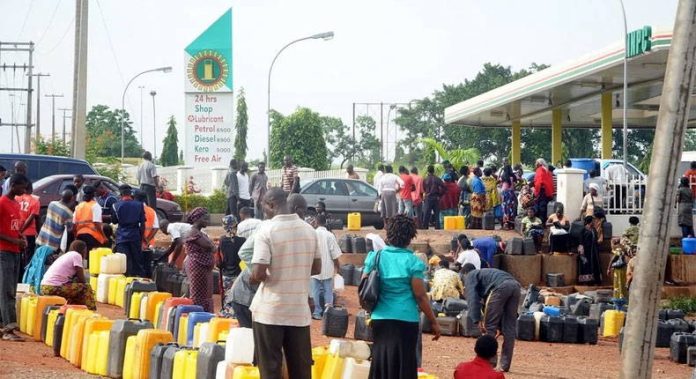Abdulraheem muhammed olarewaju
Nigeria’s petrol supply has been disrupted by the closure of several independent marketers’ filling stations due to an ex-depot price increase to N710/liter by private depot owners.
This has led to drivers crowding at petrol statios, causing huge lines at Conoil and Total stations near the NNPC offices in Abuja city center and at outlets like the NNPC mega station on the Gwarimpa sector of the Zuba-Kubwa Expressway.
Independent oil marketers, operating over 70% of the nation’s filling stations, blamed the issue on the ex-depot price hike by private depot owners.
Abubakar Maigandi, National President of the Independent Petroleum Marketers Association of Nigeria (IPMAN), said it is now challenging for independent petroleum marketers to access and sell petrol in Abuja and surrounding states and other north-western states.
The price hike and ensuing fuel scarcity have triggered a wave of reactions on social media, reflecting widespread frustration and concern among Nigerians.
Ademola Rasaq lamented, “APC government has nothing to offer this country. There is God, ooooo,” highlighting a general sentiment of disillusionment with the ruling party and indicating a lack of trust in their governance.
Charles Okoro added, “The worst hit tribe of this suffering economy have remained mute over state of things in the country. But the endurance will soon be exhausted by all when hunger will even bite harder in the days ahead,” suggesting a growing impatience and foreshadowing potential civil unrest if the economic situation does not improve.
Vitus Obinna Nnadi referenced a political figure’s statement, saying, “Senate president has said it all, that by the time Tinubu finishes his eight years, nobody will recognize this country again,” reflecting a bleak outlook on the future under the current administration.
Ismail Kolawole’s hyperbolic comment, “Nigeria is coming to an end very soon,” underscores a sense of impending doom and frustration with the country’s trajectory.
Ebuka Okeke introduced an ethnic dimension, attributing blame to a specific group with, “Yorubas brought this suffering upon us,” which can be divisive and harmful to national unity. Don Como criticized the president’s decision to handle multiple roles, stating, “The president is confused. He doesn’t know next to nothing about governance again. He even made himself Minister for Petroleum,” suggesting incompetence and poor decision-making.
Kabiru Olalere Adisa captured widespread frustration and desperation with, “Nigeria, where are we going? This suffering is too much.” James Sparrow reiterated dissatisfaction with the ruling party by saying, “APC has nothing to offer, Nigerians will suffer for nothing.”
Ekamma James highlighted regional disparities in fuel prices and a resigned acceptance of high costs with, “In Uyo, it’s still 750 and 800. So we’re used to it.”
Nasir Yahya’s strong language, “This is the worst government ever seen, almost everyone is tired of it,” conveys deep-seated disappointment and suggests widespread fatigue and disillusionment with the administration.




